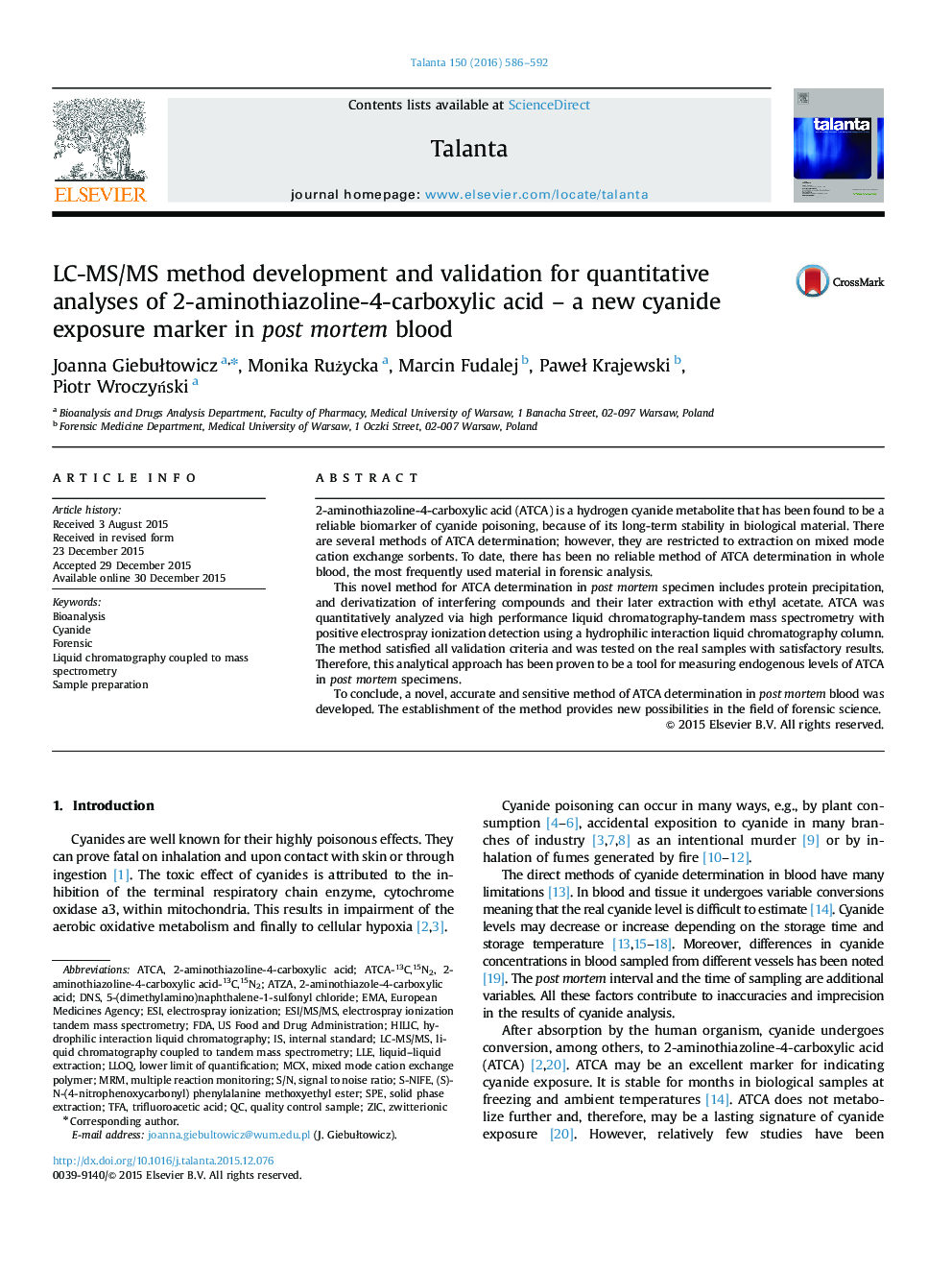| Article ID | Journal | Published Year | Pages | File Type |
|---|---|---|---|---|
| 1242209 | Talanta | 2016 | 7 Pages |
•The first time method development of ATCA extraction from post mortem blood.•All validation experiments met the acceptance criteria of FDA and EMA.•ATCA concentrations in post mortem human blood have been established for the first time.
2-aminothiazoline-4-carboxylic acid (ATCA) is a hydrogen cyanide metabolite that has been found to be a reliable biomarker of cyanide poisoning, because of its long-term stability in biological material. There are several methods of ATCA determination; however, they are restricted to extraction on mixed mode cation exchange sorbents. To date, there has been no reliable method of ATCA determination in whole blood, the most frequently used material in forensic analysis.This novel method for ATCA determination in post mortem specimen includes protein precipitation, and derivatization of interfering compounds and their later extraction with ethyl acetate. ATCA was quantitatively analyzed via high performance liquid chromatography-tandem mass spectrometry with positive electrospray ionization detection using a hydrophilic interaction liquid chromatography column. The method satisfied all validation criteria and was tested on the real samples with satisfactory results. Therefore, this analytical approach has been proven to be a tool for measuring endogenous levels of ATCA in post mortem specimens.To conclude, a novel, accurate and sensitive method of ATCA determination in post mortem blood was developed. The establishment of the method provides new possibilities in the field of forensic science.
Graphical abstractFigure optionsDownload full-size imageDownload as PowerPoint slide
